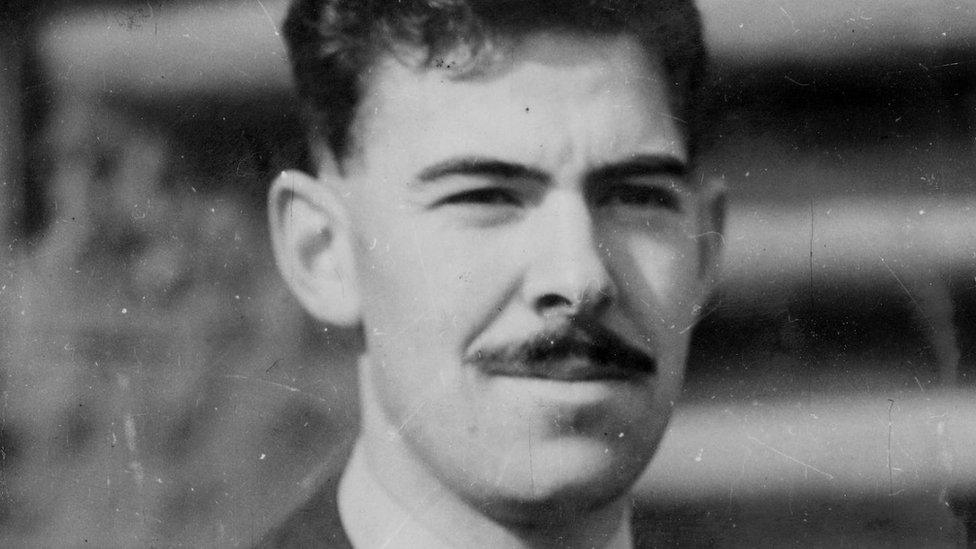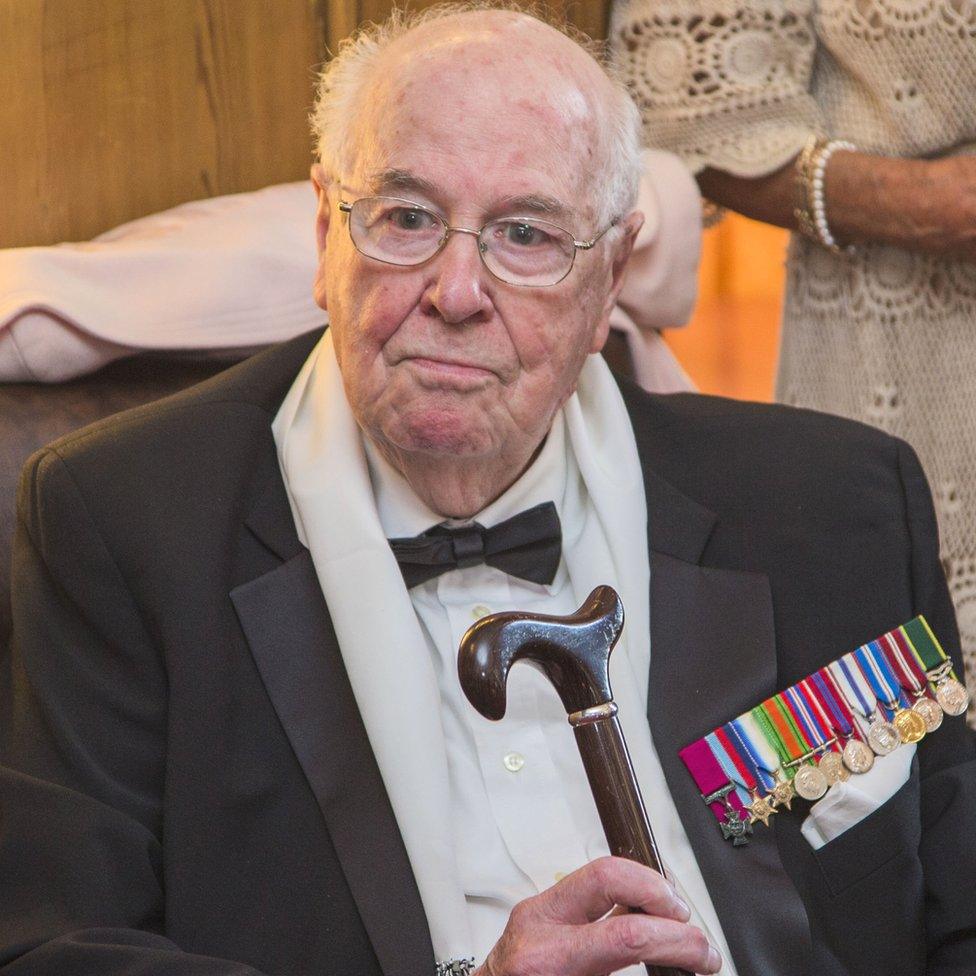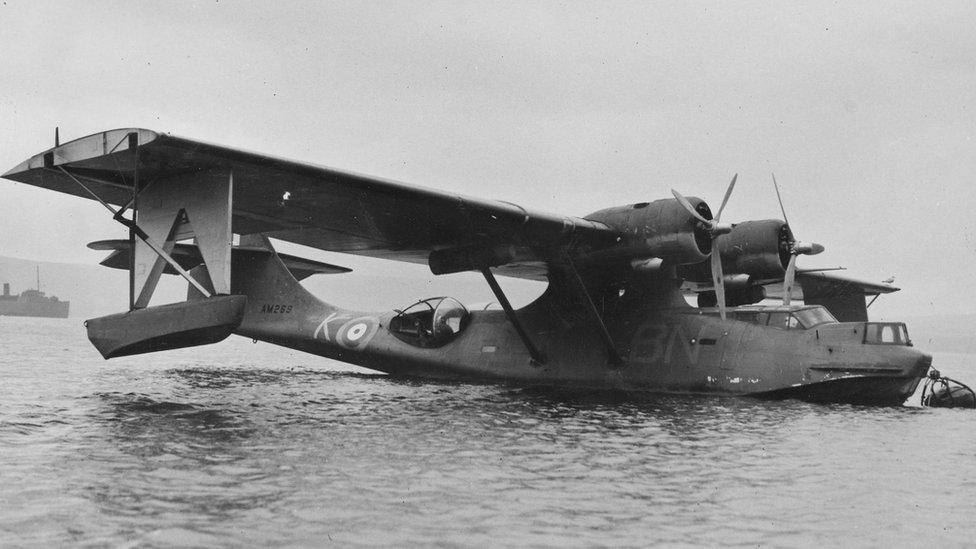Britain's last surviving World War Two Victoria Cross hero turns 100
- Published

John Cruickshank's heroic RAF actions were in 1944
Britain's last surviving Victoria Cross holder for air action in World War Two has turned 100.
Flight Lieutenant John Cruickshank, of Aberdeen, earned the honour aged 24 during an attack on a German U-boat.
Despite being badly injured, the pilot and his crew managed to sink the submarine.
The Victoria Cross is the highest recognition for valour that can be awarded to members of the British and Commonwealth Armed Forces.
The incident in question happened on 17 July, 1944.

Flt Lt Cruickshank was born in 1920

A Flying Officer at the time, he was piloting a Catalina flying boat, protecting British vessels from German U-boats in the Norwegian Sea.
A member of the crew spotted a vessel ahead of them.
They immediately went on the offensive, and began a bombing run through heavy gun fire.

Allow X content?
This article contains content provided by X. We ask for your permission before anything is loaded, as they may be using cookies and other technologies. You may want to read X’s cookie policy, external and privacy policy, external before accepting. To view this content choose ‘accept and continue’.

However, their bombs did not release.
Despite having now lost the element of surprise, he turned the aircraft around and attacked once again.
This time he released the bombs himself and successfully destroyed the submarine.

The Catalina flying boat sank the German U-boat
His navigator was killed and co-pilot seriously injured.
The pilot himself suffered 72 injuries, including serious wounds to his lungs and lower limbs.
He refused medical attention, but managed to get himself, his aircraft and crew back to their base at Sullom Voe in Shetland.
His injuries were so serious that he never returned to operational flying, leaving the RAF in 1946, and resuming a career in banking - rarely speaking of his experiences to anyone.
In 1995, he said of his honour: "I hold this (VC) in trust for all those who flew with the command during the war.
"And of course I also keep in mind all the members of my crew at that time who so magnificently carried out their duties."
In 2008 he said: "You don't get involved in that kind of thing thinking of any decorations or any recognition. It was regarded as duty."
'Others less fortunate'
In 2013, he was given the opportunity to fly in an aircraft similar to the one he piloted during the war.
He said: "It wasn't all my efforts, there were efforts of many others. We were very fortunate. There were others who were less fortunate than I was."
He was joined by his friend and former RAF serviceman, Bob Kemp, who said Mr Cruickshank was an example to all aircrew, having displayed leadership of the highest order.
Mr Kemp said: "He's a true gentleman. Quiet, reserved with a great sense of humour. When he tells one of his stories, he often roars with laughter before he reaches the punchline.
"But he has an amazing memory, and his attention to detail is notable. And for a centenarian, John has much for us to admire."
Such is the modesty of the man, Flt Lt Cruickshank is celebrating his 100th birthday quietly.